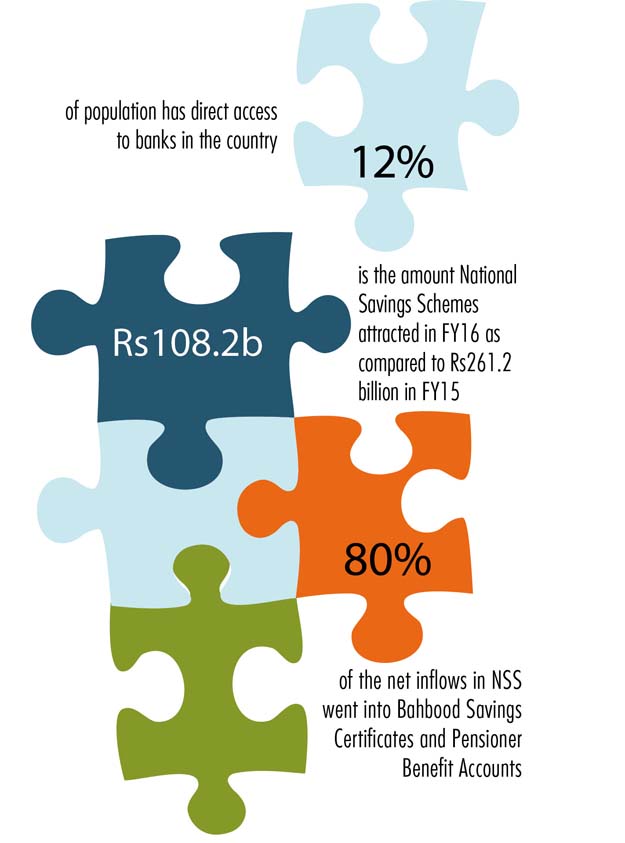
Businessmen and investors, however, took the two changes in their own ways. They adopted non-banking channels to settle their payments to avoid paying the increased withholding tax.
Withholding tax for overseas Pakistanis
Moreover, they relocated their investment to high risk-carrying instruments to keep their rate of return intact since low risk-carrying instruments have become redundant under the current low interest rate environment in the country.
“Anecdotal evidence suggests that businesses have been using these instruments [prize bond of higher values] to settle their transactions instead of using banking instruments like demand drafts, cheques, etc,” reported the State Bank of Pakistan last week.
“Since prize bond is a bearer instrument, which can be used as a substitute for cash to settle some transactions, there is reason to suspect that the penalty resulting from WHT induced a segment of the population to increase their cash and near-cash holdings in order to settle transactions outside the ambit of the banking system.
“This is the major reason why the increase was more pronounced for larger denomination bonds including Rs40,000 and Rs25,000. Hence, higher investments in prize bonds have come at the expense of bank deposit growth,” the central bank added.
Experts are of the opinion that the size of non-documented economy of Pakistan is larger than the documented economy. Accordingly, a significant segment of the population parks excessive money at home. This is known as secret savings.
Government looks for private investments in forests
As a matter of fact, only 12% of population has direct access to banks in the country. Therefore, managing the money at home makes sense.
Experts are of the view that people with black money keep it in the form of cash or in the investment instruments which do not demand their source of income like prize bond, gold, livestock and properties.
SBP’s analysis
The central bank said the downward revision in the policy rate had shifted investment priorities away from less risky money market funds towards more volatile – but more profitable – equity funds.
“This is evident from the fact that net assets of money market funds are going through contraction over the past few years, whereas the equity funds have been expanding correspondingly,” it said.
The SBP added Pakistan stock market’s benchmark index, the KSE-100 Index, rose from 13,801 points at end-June in fiscal year 2011-12 (FY12) to close at 35,742 points at end-June in FY16 with compound annual growth rate (CAGR) of 26.9% for the period.

“This is a much higher return, on average, compared to returns from money market instruments like Pakistan Investment Bonds, treasury bills, etc,” it said.
Also, the low interest rate environment encouraged households to convert their financial savings into physical assets like livestock, property, gold, etc.
Private sector needs to take lead in country's development
The bank said the stated objective behind introduction (and adjustment) of withholding tax was to broaden the tax net, help document the economy, increase the government’s financial resources and encourage return filing culture in the country.
“WHT’s imposition, however, had some unintended consequences. The first significant consequence was a marked slowdown in investment in National Savings Schemes (NSS) instruments.”
NSS attracted mere Rs108.2 billion in FY16 as compared to Rs261.2 billion in FY15.
Since Bahbood Savings Certificates and Pensioner Benefit Accounts were exempted from WHT, the investment in the two instruments remained higher than last year. The two instruments accounted for around 80% of the net inflows in NSS during the year, while most other schemes witnessed either a decline in inflows or net retirements.
“The growth in mutual funds industry is also being held back by taxation anomalies,” it said.
the writer is a staff correspondent
Published in The Express Tribune, November 21st, 2016.
Like Business on Facebook, follow @TribuneBiz on Twitter to stay informed and join in the conversation.



1732184775-0/BeFunky-collage-(80)1732184775-0-165x106.webp)













COMMENTS (2)
Comments are moderated and generally will be posted if they are on-topic and not abusive.
For more information, please see our Comments FAQ